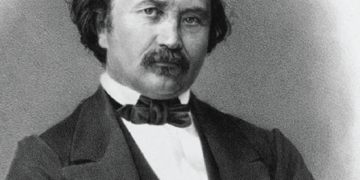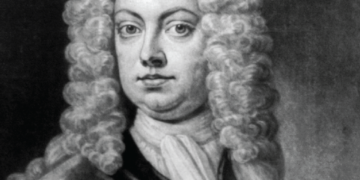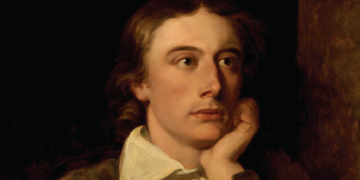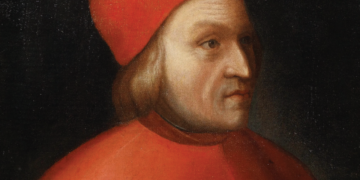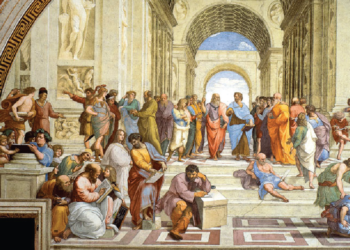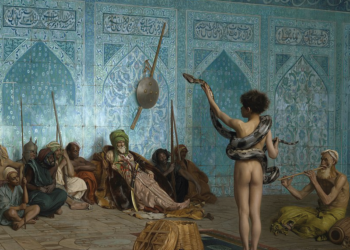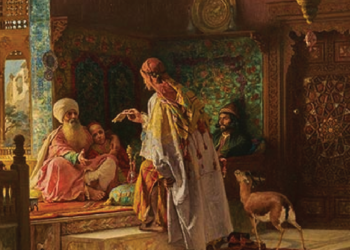Titus Livy
1) His Biography:
Livy, whose full name was Titus Livius Patavinus, was a prominent Roman historian who lived during the 1st century BC. Born in Patavium (modern-day Padua, Italy) in 59 BC, Livy dedicated his life to the study and documentation of Roman history. His work, titled “Ab Urbe Condita Libri” (Books from the Foundation of the City), commonly known as “Livy’s History of Rome,” remains one of the most important and influential works of Roman historiography.
Livy’s early life is not extensively documented, but it is believed that he received a thorough education in rhetoric, philosophy, and literature. His literary skills and passion for history soon led him to Rome, where he began his career as a historian. Livy’s main objective in writing his monumental work was to provide an account of Rome’s history from its legendary founding in 753 BC up until his own time.
In his biography, Livy focused not only on political and military events but also on the moral and cultural aspects of Roman society. He aimed to create a narrative that would not only inform but also educate his readers, emphasizing the importance of virtuous conduct and the role of character in shaping historical events. Livy’s writing style was eloquent and captivating, drawing readers into the vivid world of ancient Rome.
Livy’s dedication to historical accuracy was evident in his meticulous research and reliance on primary sources. He consulted various historical records, documents, and eyewitness accounts to reconstruct the events of the past. However, he also acknowledged that certain details and accounts were based on legends and myths, blending historical facts with mythical elements to create a comprehensive narrative of Rome’s origins.
The monumental work of Livy consisted of 142 books, although only 35 of them have survived to the present day. Each book covered a specific period in Roman history, with Livy often including speeches and dialogues to add depth and authenticity to his storytelling. His work was not a critical analysis of historical events but rather a grand narrative that aimed to inspire patriotism and promote the virtues of the Roman Republic.
Livy’s contribution to Roman historiography cannot be overstated. His History of Rome provided subsequent generations with a detailed account of Rome’s rise to power and its transformation from a city-state to a dominant empire.
His work not only influenced later Roman historians but also served as a valuable source for scholars and intellectuals throughout the centuries, providing insights into the political, social, and cultural aspects of ancient Rome. Livy’s dedication to preserving and recounting the grandeur of Rome’s past has ensured that his legacy endures to this day.
2) Main Works:
“De Vita Sua” (On His Life):
This was an autobiographical work in which Livy provided insights into his own life and experiences as a historian.
“Dialogus de Oratoribus” (Dialogue on Orators):
Livy’s dialogue explored the role and qualities of orators in Roman society, discussing the art of rhetoric and its significance in public life.
“Epitome” (Summaries):
Livy wrote brief summaries of his own historical narrative, condensing the vast content of his extensive work into a more concise format. These summaries served as a useful reference for readers seeking a quick overview of Roman history.
3) Main Themes:
Virtue and Morality:
Livy places great emphasis on the importance of virtuous conduct and moral character in shaping historical events. He portrays Rome’s success and decline as closely linked to the moral choices made by its leaders and citizens. Livy highlights examples of noble virtues, such as courage, self-sacrifice, and patriotism, and condemns vices such as greed, ambition, and moral corruption.
Rome’s Destiny:
Livy explores the concept of Rome’s divine destiny and exceptionalism. He presents Rome as a city destined for greatness, chosen by the gods to become a dominant force in the ancient world. Livy weaves myths and legends into his narrative to emphasize Rome’s unique role in history and to justify its imperial ambitions.
Political Institutions and Leadership:
Livy delves into the political institutions of Rome, examining the evolution of the Roman Republic and its system of governance. He explores the role of the Senate, the consuls, and other political offices, highlighting the virtues and flaws of various leaders. Livy also discusses the delicate balance between aristocracy and populism, and the impact of political rivalries on Rome’s stability.
Military History and Conquest:
Livy provides detailed accounts of Rome’s military campaigns and conquests. He vividly describes battles, strategies, and the valor of Roman soldiers. Livy examines the relationship between military success and political power, portraying Rome’s expansion as both a source of glory and a potential danger.
Historical Cycles and Lessons:
Livy observes recurring patterns and cycles in Roman history, drawing parallels between past
events and contemporary times. He seeks to educate his readers by highlighting the
consequences of actions taken by previous generations. Livy underscores the importance of
learning from history to avoid repeating past mistakes.
Religion and Superstition:
Livy explores the role of religion and superstition in Roman society. He describes religious
practices, rituals, and the influence of divine signs and prophecies on political
decision-making. Livy reflects the belief that Rome’s success is closely tied to its religious
piety and adherence to divine will.
Cultural and Social Values:
Livy offers glimpses into Roman social and cultural norms, including gender roles, family
life, education, and the hierarchy of Roman society. He showcases the idealized Roman
virtues of frugality, discipline, and devotion to duty, presenting them as essential for
maintaining the strength and integrity of the Republic.
4) Machiavelli on Livy:
Niccolò Machiavelli, the renowned Italian political philosopher and writer, held a distinct perspective on Livy and his work. Machiavelli, known for his influential book “The Prince,” which dissected the principles of political power, found inspiration and admiration in Livy’s historical narratives.
Machiavelli considered Livy as an exemplary historian due to his ability to capture the grandeur of Rome’s past and his dedication to preserving the memory of significant events. Machiavelli appreciated Livy’s attention to detail and his use of vivid descriptions, speeches, and dialogues to bring history to life. He regarded Livy as a source of valuable lessons and examples for contemporary leaders.
Machiavelli identified a pragmatic approach to politics in Livy’s work. He appreciated Livy’s portrayal of the political and military strategies employed by Rome’s leaders, emphasizing the importance of practicality and flexibility. Machiavelli believed that Livy’s narrativesdemonstrated how successful leaders adapted their actions to changing circumstances, making decisions based on the realities of power rather than idealistic notions.
Machiavelli found in Livy’s work a profound exploration of the relationship between virtue and fortune. While Livy stressed the significance of virtuous conduct, Machiavelli discerned a recognition of the role that fortune played in the rise and fall of states and leaders. He saw Livy’s writings as a reflection of the complexities of politics, where personal virtues alone could not guarantee success or survival.
Machiavelli often turned to Livy’s historical examples to illustrate his own political theories Livy’s accounts of figures such as Romulus, Scipio Africanus, and Camillus served as archetypes of effective leadership and the acquisition and maintenance of power. Machiavelli drew insights from Livy’s narratives to support his argument that successful rulers should be willing to employ both force and cunning when necessary.
Livy’s depiction of Rome as a republic resonated with Machiavelli’s own views on political systems. He admired Livy’s portrayal of the Roman Republic as an embodiment of civic virtue and political participation, which he contrasted with the tyrannies and despotisms of his own time. Machiavelli saw in Livy’s work a reminder of the potential for greatness that existed within republican institutions.
Machiavelli’s engagement with Livy’s historical narratives exemplifies his broader objective of understanding and analyzing political power. He drew inspiration from Livy’s depictions of political pragmatism, virtuous leadership, and the interplay between fortune and personal agency. Machiavelli’s admiration for Livy’s work highlights the enduring impact of Livy’s insights on subsequent political thinkers and their understanding of history and statecraft.
5) His Legacy:
The legacy of Livy, the renowned Roman historian, extends far beyond his own time and continues to influence scholars, writers, and historians to this day. Livy’s greatest contribution lies in his preservation and documentation of Rome’s history. Through his monumental work, “Ab Urbe Condita Libri,” Livy ensured that the early history of Rome, including its foundation myths and legendary figures, would be remembered and studied for generations to come. His meticulous research and reliance on primary sources set a standard for historical inquiry and served as a model for future historians.
Livy’s writing style and storytelling techniques captivated readers then and now. His vivid descriptions, engaging dialogues, and dramatic accounts of battles and political intrigues brought ancient Rome to life. Livy’s ability to intertwine myth and legend with historical facts created a compelling narrative that appealed to a wide audience.
His work set a precedent for the use of narrative storytelling in historical writing.Livy intended his work to not only inform but also educate his readers. He aimed to inspire virtue and moral conduct by highlighting the consequences of virtuous or corrupt actions taken by historical figures. Livy’s emphasis on character and ethical decision-making influenced subsequent writers and thinkers, serving as a moral compass for generations studying Roman history.
While Livy occasionally incorporated legends and myths into his narrative, he was dedicated to historical accuracy. His meticulous research and reliance on multiple sources set a precedent for rigorous historical investigation. Livy’s work demonstrated the importance of critically evaluating historical accounts and using multiple perspectives to construct a comprehensive understanding of the past.
Livy’s work had a profound impact on subsequent historians and writers. His comprehensive narrative of Rome’s rise to power and its transformation into an empire served as a foundation for later historians, including Tacitus and Suetonius. Livy’s approach to historical writing, blending political, military, and cultural history, became a template for future historians exploring the complexities of ancient civilizations.
Livy’s work played a significant role in shaping Roman identity and fostering a sense of patriotism. By recounting Rome’s heroic past and emphasizing the virtues of its citizens, Livy contributed to the collective memory of the Roman people. His narrative served as a reminder of Rome’s exceptionalism and the values that made it great, reinforcing a sense of national pride.
Livy’s work gained renewed popularity during the European Renaissance. His focus on republican ideals, the study of history as a moral guide, and his emphasis on virtuous leadership resonated with Renaissance thinkers. Livy’s historical narratives were translated and widely read, influencing the political and cultural climate of the time.
Livy’s legacy as a historian, storyteller, and moral guide continues to inspire and shape our understanding of ancient Rome. His meticulous research, engaging narrative style, and commitment to preserving the historical memory of Rome have ensured that his work remains a cornerstone of Roman historiography and a valuable source for scholars and enthusiasts alike.
6) Some Quotes:
“We fear things in proportion to our ignorance of them.”
― Titus Livius (Livy)
“Things turn out best for the people who make the best out of the way things turn out.” ― Titus Livius
“It is pleasant, when the sea is high and the winds are dashing the waves about, to watch from the shores the struggles of another.” ― Livy
“Indeed, that is the nature of crowds: the mob is either a humble slave or a cruel aster. As for the middle way of liberty, the mob can neither take it nor keep it with any respect for moderation or law.” ― Livy, The History of Rome, Books 21-30: The War with Hannibal
“It is your duty,’ he said, ‘to recover your country not by gold but by the sword. Y ou will be fighting with all you love before your eyes: the temples of the gods, your wives and children, the soil of your native land scarred with the ravages of war, and everything which honor and truth call upon you to defend, or recover, or avenge.” ― Livy, The History of Rome, Books 1-5: The Early History of Rome
“True moderation in the defence of political liberties is indeed a difficult thing: pretending to want fair shares for all, every man raises himself by depressing his neighbour; our anxiety to avoid oppression leads us to practice it ourselves; the injustice we repel, we visit in turn upon others, as if there were no choice except either to do it or to suffer it.” ― Livy, The History of Rome, Books 1-5: The Early History of Rome
“[Rhodian delegation:] Every city contains wicked citizens from time to time and an ignorant populace all the time.” ― Livy, Rome and the Mediterranean: Books XXXI-XLV of the History of Rome from its Foundation
“The Roman envoys replied that they would go where their own generals led them, not where bidden by their enemies.” ― Livy, The History of Rome, Books 6-10: Rome and Italy
“We can endure neither our vices nor their cure.” ― Livy
“This above all makes history useful and desirable; it unfolds before our eyes a glorious record of exemplary actions.” ― Titus Livy


